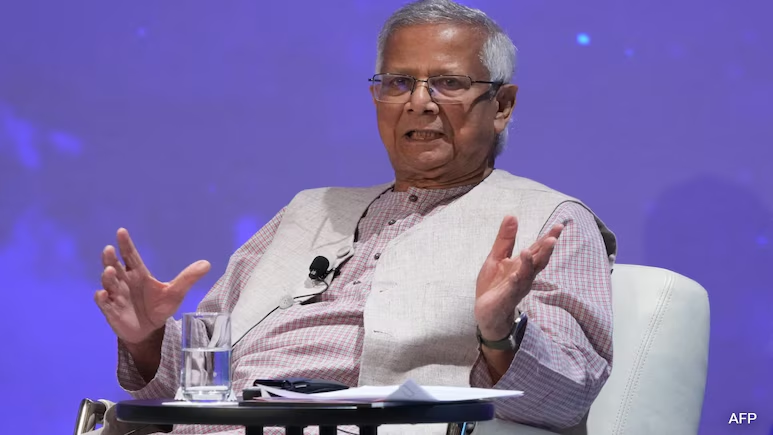NEW YORK — Bangladesh’s Chief Adviser Muhammad Yunus has stirred diplomatic controversy by bluntly admitting that Dhaka’s relations with New Delhi are strained, accusing India of backing ousted prime minister Sheikh Hasina and obstructing regional cooperation through SAARC.
Speaking on the sidelines of the United Nations General Assembly (UNGA), the Nobel laureate said India disapproved of last year’s student-led uprising that forced Hasina from power. “We have problems with India right now because they didn’t like what the students have done,” Yunus said, alleging that Indian media spread “fake propaganda” portraying the movement as Islamist.
Accusations Against India
Yunus went further, claiming that India is sheltering Sheikh Hasina, whom he described as a source of instability for Bangladesh. “India is hosting Hasina, who has created problems… that creates tension between India and Bangladesh,” he said.
New Delhi has previously expressed concern over rising anti-India rhetoric in Bangladesh, including threats toward India’s northeast and a spike in violence targeting minorities, especially Hindus. However, Yunus’s interim administration has largely dismissed these concerns.
Reviving SAARC, Exploring ASEAN
In his remarks, Yunus linked the bilateral tensions to stalled regional cooperation. “SAARC is not working because it doesn’t fit into the politics of one country,” he said, a thinly veiled reference to India’s resistance to engage with Pakistan through the forum.
Yunus insisted that Bangladesh could act as a bridge for South Asian trade and ocean access, while also signaling interest in joining ASEAN to accelerate economic growth.
SAARC has been dormant since 2014, with its 2016 summit cancelled after the Uri terror attack that India blamed on Pakistan. Since then, India has prioritized the BIMSTEC grouping, which excludes Pakistan, to advance regional integration.
Election Roadmap
Beyond foreign policy, Yunus sought to reassure Bangladeshis and the international community that his interim government is preparing for free and fair elections in February 2025.
“This will give hope to 126 million voters after 15 years without a genuine democratic process,” he said, promising a peaceful and transparent transition.

